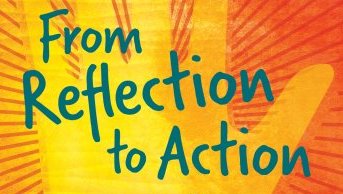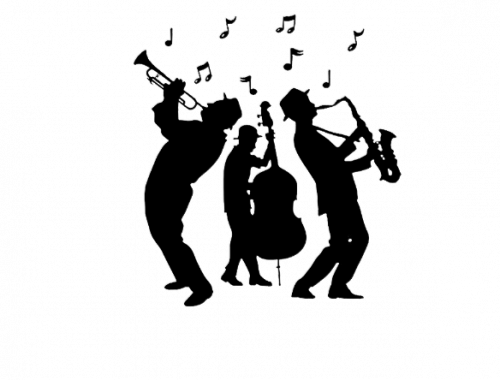I DON’T KNOW WHERE TO SIT
Along comes a great opportunity to introduce yourself to someone who has been in the business for years. You smile, hold out your hand in preparation for a strong handshake, and then the question is asked. ‘So where do you fit into all of this?’… Me: *sighs*. ‘Well, I’m here on work experience, so I’m just observing really. I’m learning a lot though!’.
My work experience has been challenging, insightful, and highly beneficial to me, but at times I’ve felt a little lost. I am an utter control freak, to my demise at times. Participating in the world of ‘Callings’, Kabosh Theatre Company’s latest production, has been exciting, but also a test of my ability to let someone else hold the reigns. [1] The director Paula took me under her wing, and I observed it grow from a freshly written script to a piece of theatre everyone should see. I wished I had a bit more to do with that success. I plan to reflect on this experience using Schon’s Model of Reflection. [2]

Self Conscious Vibes Only… (the actual event and how I naturally responded)
Getting to grips with who I am in a room full of people who didn’t need to figure that out was difficult. During the initial read throughs of the script, Paula would pose questions to the actors, providing insight regarding the characters, while the stage manager Caitlin would take notes for the editing of the script. I knew that I was part of the conversation, but I felt like I lost my voice. I came up with thoughts, but they would swiftly be mentioned by someone else, or, even worse for my self-esteem, contradicted. Paula would ask me for my input periodically, and I answered with immense caution every time. In hindsight, I knew the reason why, but it was difficult to admit…

I felt inadequate. At first, I knew it could be played off as nerves since I was new, but in time my quietness when discussions about the play were occurring became embarrassing. An assistant director was the closest thing I had to a title, which famously can be a tumultuous learning curve for early career directors. As written by Anna Girvan for the RSC, the assistant director’s job is ‘to assist the director in delivering his or her creative vision’, and what this actually entails means something different for every show. [3] Looking back I should have asked Paula to explain her vision and draw my own interpretation from there, which I will do next time. I had mentioned my experience and kudos I received for my directing to Paula, but I felt as though I was probably a let-down. I had heard of Imposter Syndrome in the past, so I researched it and I felt comforted that there were other people who could relate to me. [4] I talked to my lecturer Mark about how I was feeling, and he had one question for me which served me well. ‘I’m sorry to hear that, but what are you going to do about it?’.
I had to regain some self confidence (and decide how to act in this predicament)
I had to accept some truths, get past them, and attempt to adapt. I was the youngest person in the room, with no professional theatre experience. No one expected me to have all the answers, they are only focused on being the best version of themselves. Paula knew I was coming into this project as an outsider. She worked with the writer for months to write the story; she knew the characters inside out. Of course, she would have a more complex understanding than me, and didn’t anticipate I would arrive and take over the show with my opinions and insights. I needed to support her and become an echo for the creative outlook she had for the play. In a way, I had to reinvent myself, to make the transition smooth from being the director/costume designer/ every job I can take on type of practitioner, to a member of the company who is a reflective surface for Paula’s ideas. To quote Herminia Ibarra, ‘Change always takes much longer than we expect, because to make room for the new we have to get rid of some of the old selves’. [5]

With that pressure off my shoulders, I had to decide the best way for me to appreciate the opportunity I had been given. I thought about what I do as a director. I take lots of notes. I watch and react and appreciate the art being created in front of me. The next day I went into the rehearsal room and that’s exactly what I did. Popping the directing hat back on was the best thing I could have done, even if I wasn’t sharing my notes with the actors. Paula noticed me doing this, and asked me to share them with her. This was exciting, I got feedback from someone as esteemed as Paula. We talked through what I had noticed, and she even asked me what I thought about their acting styles. Finally, I felt like I knew what I was doing there!
Learning to cope in the workplace is a very complex endeavor and may determine the level of fulfillment and satisfaction that is achieved overall
Christine Fanthome [6]

Fake that confidence until it’s real (Reflection and planning what to do next time)
Looking back on it now, I let my weaknesses get the better of me. In hindsight, because I’m used to filling the leader role, not being the director this time made me feel uneasy. When I’m not in charge I feel insecure about my contribution being judged or unworthy. The ability to recognise that is a huge revelation for me. This skill will be useful to me for the rest of my career, as knowing how to be part of a team and letting go of control will make me a more enjoyable and easy-going person to collaborate with. Esteemed Belfast director Rhiann Jeffrey even detailed her experience of shadowing directors before she put on her own professional shows during a talk she gave for this module, and how it shaped her as an artist. Additionally, I have learned that I was possibly dealing with Imposter Syndrome, which is normal and manageable. I will have to work on building self-confidence and next time, if it happens again where I feel a bit on the outside, to talk to someone else involved. If Paula had of been made aware by me about how I felt, I could have benefitted even more. Next time I won’t keep my mouth shut!
References
[1] Kabosh, ‘Callings’, kabosh.net, https://kabosh.net/production/callings/ (Accessed 7th April 2022)
[2] Donald A. Schön, The Reflective Practitioner: How Professions think in Action (London: Temple Smith, 2016)
[3] Anna Girvan, ‘So what does an assistant director actually do?’ rsc.org https://www.rsc.org.uk/blogs/whispers-from-the-wings/so-what-does-an-assistant-director-actually-do (Accessed 7th April 2022)
[4] Michelle Peng, ‘What Is Impostor Syndrome, and Is It All Bad?’ Charter in partnership with Time, 2nd March 2022, https://time.com/charter/6153942/impostor-syndrome/ (Accessed 15th March 2022).
[5] Herminia Ibarra, Working Identity, (Massachusetts: Harvard Business School Press, 2004)
[6] Christine Fanthome, Placements: A Survival Guide for Students (Basingstoke: Palgrave Macmillan, 2004)
You May Also Like

27 March 2022

Reflection-In-Action: The Value of Challenges
25 March 2022


